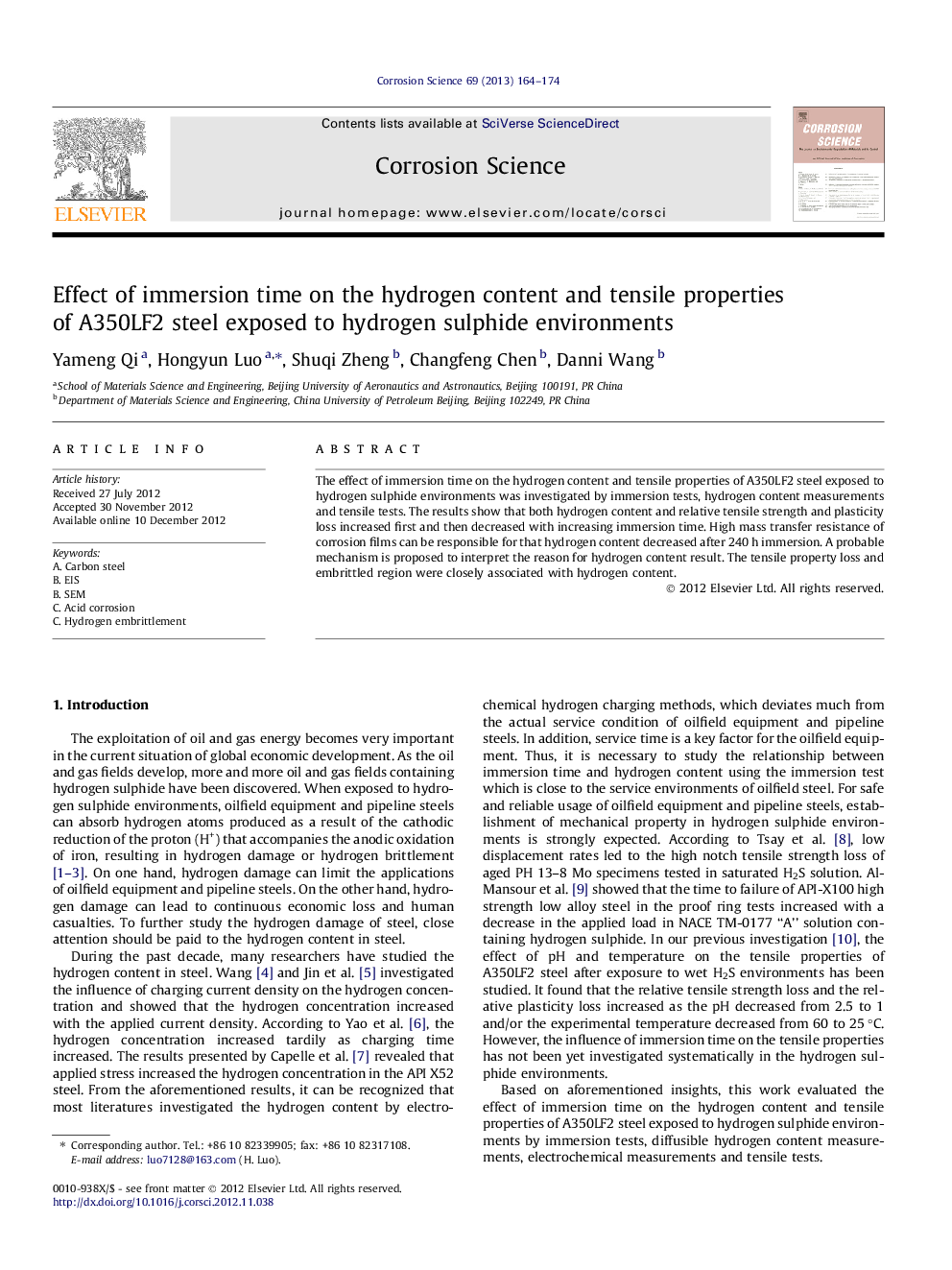| Article ID | Journal | Published Year | Pages | File Type |
|---|---|---|---|---|
| 1469252 | Corrosion Science | 2013 | 11 Pages |
The effect of immersion time on the hydrogen content and tensile properties of A350LF2 steel exposed to hydrogen sulphide environments was investigated by immersion tests, hydrogen content measurements and tensile tests. The results show that both hydrogen content and relative tensile strength and plasticity loss increased first and then decreased with increasing immersion time. High mass transfer resistance of corrosion films can be responsible for that hydrogen content decreased after 240 h immersion. A probable mechanism is proposed to interpret the reason for hydrogen content result. The tensile property loss and embrittled region were closely associated with hydrogen content.
► Hydrogen content increased first and then decreased with increasing immersion time. ► High mass transfer resistance can be responsible for hydrogen content result. ► The variation of the tensile property loss is similar with that of hydrogen content. ► Embrittled region was closely associated with hydrogen content. ► A probable mechanism is proposed to interpret the reason for hydrogen content result.
